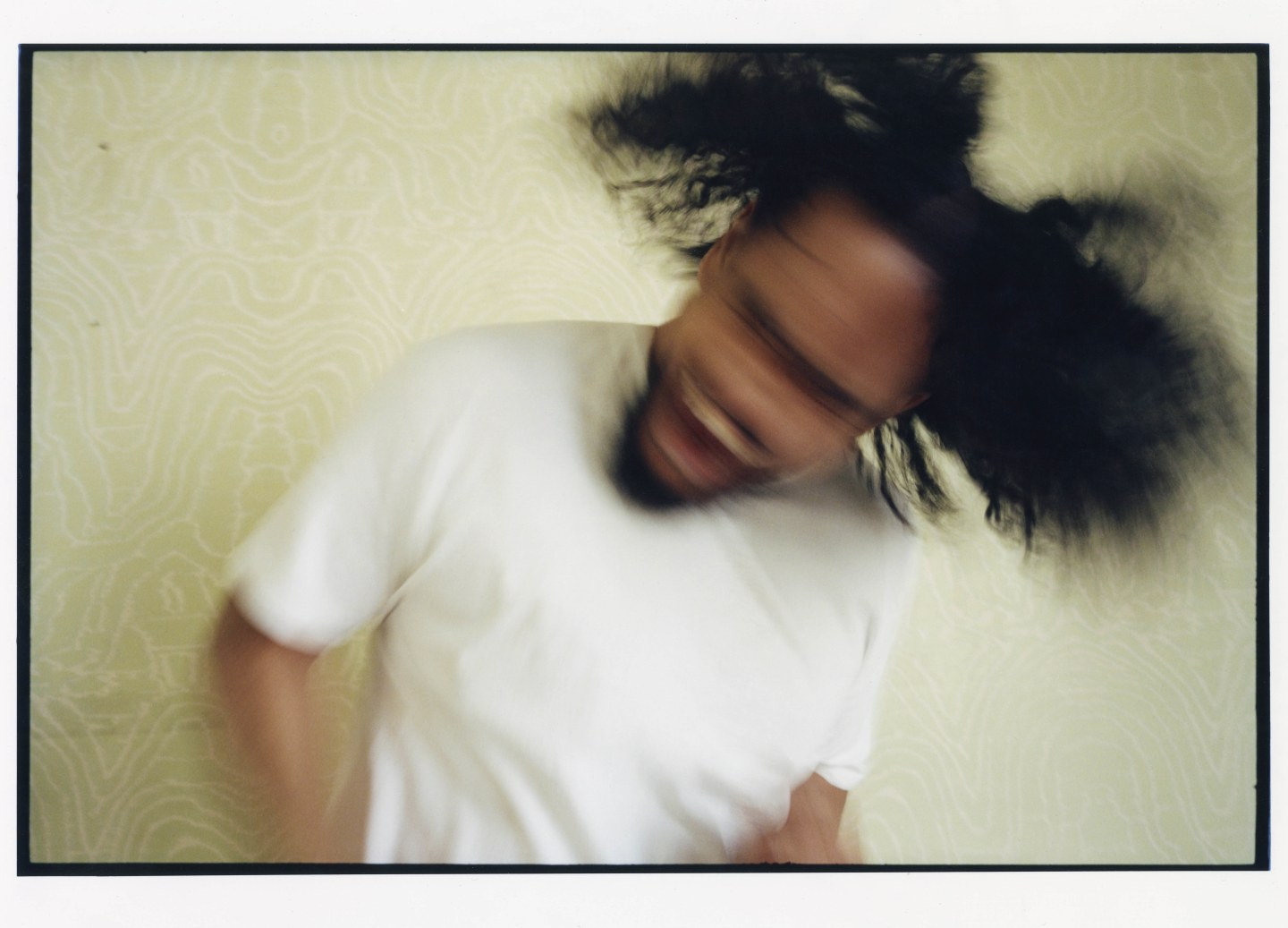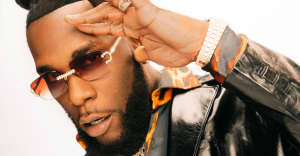 Machine Operated
Machine Operated
“I used to live in South London / There’s not much of it left,” Miles Romans-Hopcraft monotones at the start of “South,” the January 2021 breakout single that’s been rereleased nearly 18 months later on his debut studio LP as Wu-Lu. Out now on Warp, Loggerhead is a brutally aggressive and intensely vulnerable record that runs the full gamut of his complex emotional and stylistic ranges.
The latter spectrum is demonstrated with emphatic attention: Ever since the release of his mostly instrumental 2015 tape Ginga, critics have pigeonholed the Brixton native as a South London jazz scene mainstay, and on Loggerhead, he lets a multitude of other influences — most notably in the hardcore and hip-hop realms — stand front and center.
The album’s psychological depth is more organic. On “South,” Wu-Lu lets his anger at the rapid gentrification of his neighborhood bubble over, leaking out from behind that first line until it explodes into a death metal scream halfway in. But ferocious tracks like that one, as well as standouts “Blame” and “Scrambled Tricks,” are offset by softer ones: “I don’t wanna see your mental health go to waste,” Wu-Lu sings repeatedly on “Calo Paste,” urging his friends to seek help when they need it and find creative ways to express themselves. And on “Broken Homes,” he pulls from his experience working with youth clubs in his community, listening to the stories they tell and relating them back to his own childhood.
On the eve of Loggerhead‘s release, Wu-Lu broke down his new project for The FADER track by track.
1. Take Stage
“Take Stage” comes from a place of empowerment inside myself and for those who don’t believe in their future. It’s a depiction of me walking up to the stage in front of big bright lights looking at my future — defying all odds against people who want to tell me that I can’t do it and also going against the grain, proving to myself that I can do anything I want. Whatever I put my mind to, I can achieve. It’s almost like me imagining my first day of school, getting my lunch ready and putting on my uniform for the first time to face something I’ve never experienced before.
2. Night Pill (feat. Asha)
“Night Pill” is a representation of the headspace of someone who feels alone and unsupported inside their own internal turmoil. So you are separate from the swirling liquid that is life and eventually inside the hurricane of day-to-day knowing that at some point, you will separate from everyone else and whatever they seem to be involved in — the internal fight that lets you know you are different and that can sometimes be a hindrance. But also it’s OK to be separate. This head space for me comes from a place of being intoxicated on a night out, going through thoughts in my head, rolling around my brain, getting flustered with the idea of being separate and unsupported. But in hindsight, this is not always true.
The song came out of a jam that myself and the guys were doing in the Dead Man’s Pub in West London. There was no real lyrical content directly for the song at that moment. It was only when I met Asha from the band Sorry a few weeks later because she was in my house with my brother when the song really came together. She put down some lyrics that really resonated with me. Then I knew what I needed to touch on.
3. Facts (feat. Amon)
“Facts” is about being opinionated and paranoid, saying things without no filter. The song is about people’s ideas being taken. It’s communicated from from quite a heightened space of paranoia. Ultimately, it’s the idea of having your ideas taken from you and used against you for someone else’s gain. It’s also about letting go of grudges and people. The approach to the song was a deconstructed jungle/drill song with the London endz mentality.
4. Scrambled Tricks
This song is about being manipulated and overcoming that — the idea of people in your life pulling the wool over your eyes and then you realize this and things become super clear. It’s about how we deal with this and how to overcome it. I wrote this from a perspective of really seeing people around me for who they are. It started out in a place where the beat was made out of bits of jam sessions, and once I produced the back bone, it took me a while to realize what I wanted to talk about and to not be worried what people’s thoughts. It almost didn’t make the album, but later down the line, it became a staple.
5. South (feat. Lex Amor)
“South” is a coming of age song about understanding where I have come from and where I am going to be in the future. In the song, I felt that I had to say what I can see and what I feel about an area that has meant so much for me in the long term and how much it has changed in the short term. What made me speak about South London was the fact that it’s a place of nourishment that has now been refined to be a manufactured breeding ground for culture vultures who seem to infest the world over. So it’s a call to arms for all those who resonate with it. I thought I would make a song that hits hard and would take me out of South London’s jazz scene (which people seem to categorize me in) as well as make it super clear that I’m coming with smoke and love and an unfiltered approach to my art. I’m gonna say it how I feel it. So take me for what I am: a human who is expressing.
6. Calo Paste (feat. Léa Sen)
This song came out of a sample riff I was writing on my guitar in Norway and then put through my MPC to twist it up. Ultimately, when I was making the song I was thinking about Neutral Milk Hotel. After watching a Pitchfork mini-doc about that band, I learnt that a lot of [Jeff Mangum’s] brilliance came from struggling with mental health issues. This resonated with me and stayed with me as I was writing the lyrics. The way that he put arrangements and lyrics together made me want to visit the conceptual side of my writing. As things progressed while I was making the album, I found I needed to comment on situations happening around me that made me feel worried for my homies’ mental health. So I put it in a song to communicate that to them and the world around me. I had a few conversations with Léa Sen about this subject and felt like she would have something to add to the narrative.
7. Slightly
I made this tune when I was really tired and out of energy. It almost straddles the surface of depression. Again, it’s an inner voice trying to get my head out of the quicksand that is my insecurity. This song also came from people trying to typecast my music as one thing, and ultimately, I thought I could get across the same emotion with a hip-hop backdrop to make people understand that the music that I’m trying to make doesn’t have a genre, but it straddles all the best runners at the same time.
8. Blame / 9. Ten
“Blame” came from a situation when I was writing the album out in Norway with heightened emotions and a a lot of intense energy floating around. The drum break set off an exfoliation of emotion I didn’t know I needed until I got back from the writing trip. Like a lot of the songs on the album, this song became a vessel for an outpour and a punching bag for my immediate thoughts. But basically, it was a cry for help at the time and also a little nod to keep your friends close and your enemies closer.
“Ten” is literally about being at the end of my patience. Not giving a fuck. Ready for war. Ready to fight my way through all the bullshit. Done with being told what to do by people who chat shit and manipulate things for their own gain. Small man syndrome. There is a little remorse in the song, but only like two percent. It’s supposed to be a call to the end of a long situation.
10. Road Trip
“Road Trip” is a song that got made after hours of jamming between me and my bandmates Blake [Joshua Cameron Cascoe] and Jordan [Thompson Hadfield]. Once we stopped playing, I started to thrash out a bassline and was joined by the guys in convoy. Once we started to hit it hard, I shouted to our engineer Max [Lyons-Depont], “RECORDDDDD… Record!“ Once we’d laid down three takes, I went straight into the booth and spoke my truth. At the time I felt like my boy TYPE, who passed away few years back, was with me. So I felt like I was sending a message to him and those alike.
11. Times
“Times” is another coming of age song. This came out of a jam I was having on my birthday a few years back with Morgan [Simpson of black midi] and Oscar Jerome. Nothing stood out to me at the time. But someone played me an Instagram video they took of that day, and I heard a tiny sample that I wanted to use. Once I harnessed that, I built the song up to what you hear now. The song is about coming of age, growing too fast. It’s a message to the younger me: that you don’t need to impress anyone but yourself because you have time to develop into who you are. There’s no rush, so be yourself.
12. Broken Homes
“Broken Homes” stems from living life as a spectator in my ends, Brixton — working with youths from the area, hearing what they have to say about their own upbringing and how those situations relate to things I’ve seen and experienced in my own life. It’s another song that got written in the Dead Man’s Pub and was one of the early songs that we made that kicked off the whole quest for making this album. When I started to pen the lyrics, I knew that this album was gonna be an emotional one, something I needed to let off and be OK with what was about to come. This song really made me question my role within music and my creativity, but it also solidified my confidence to express myself however I see fit.
